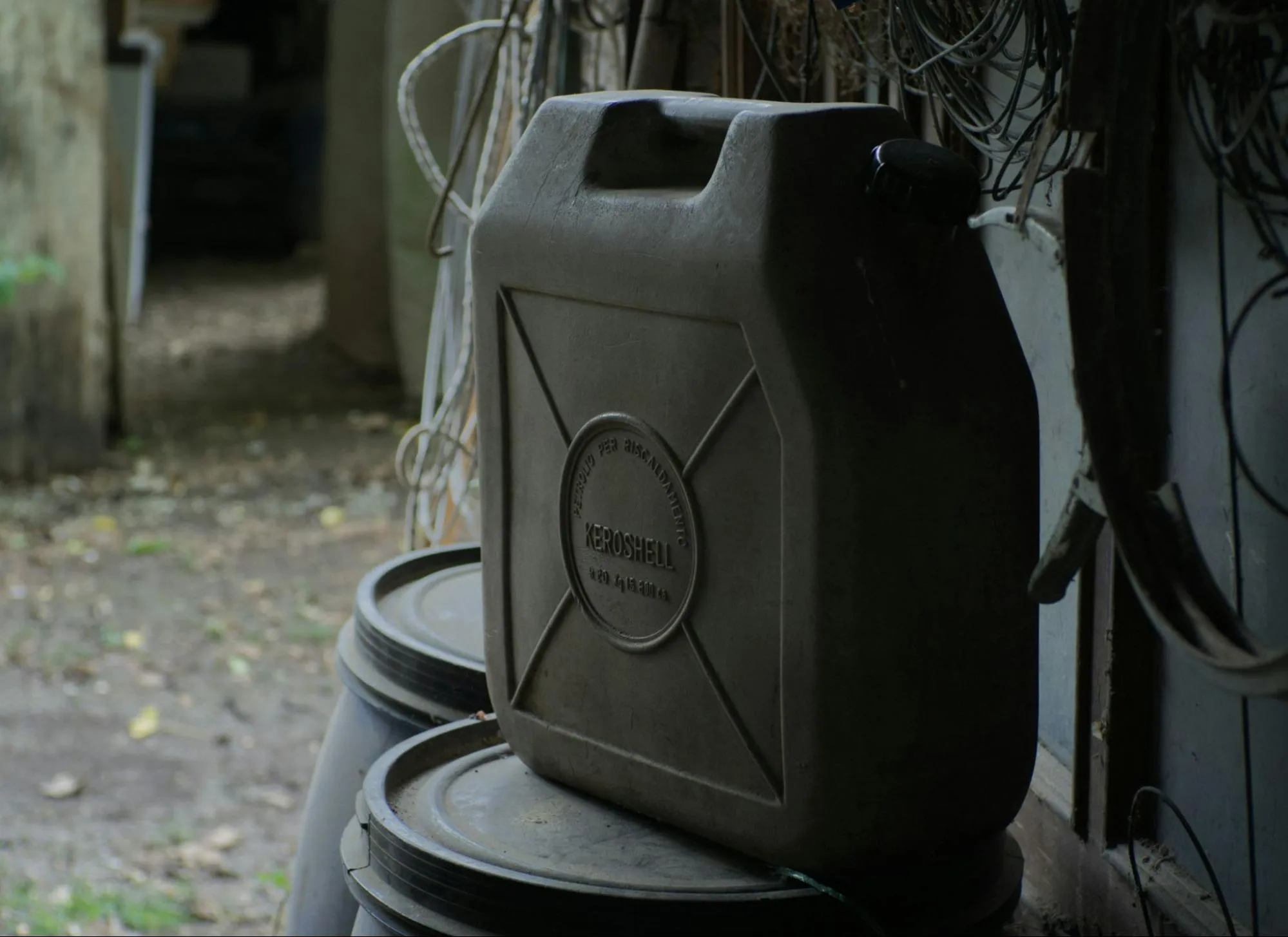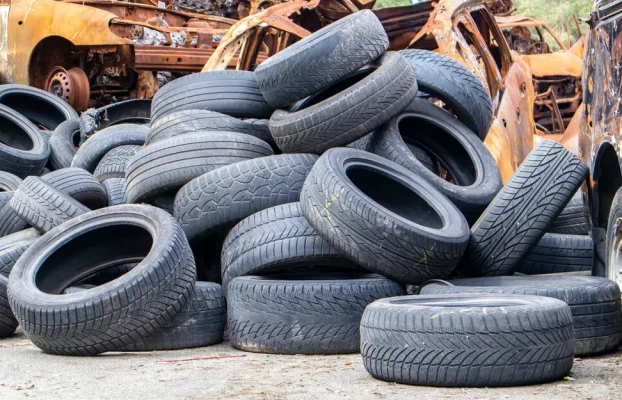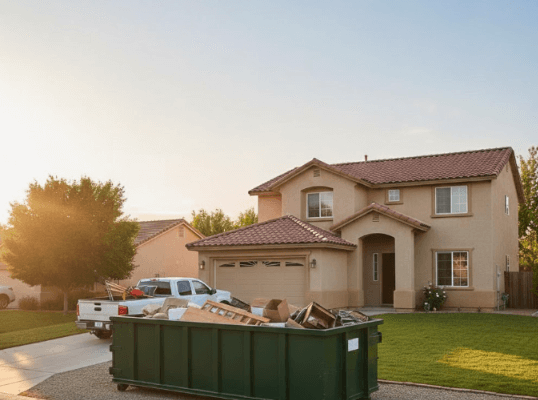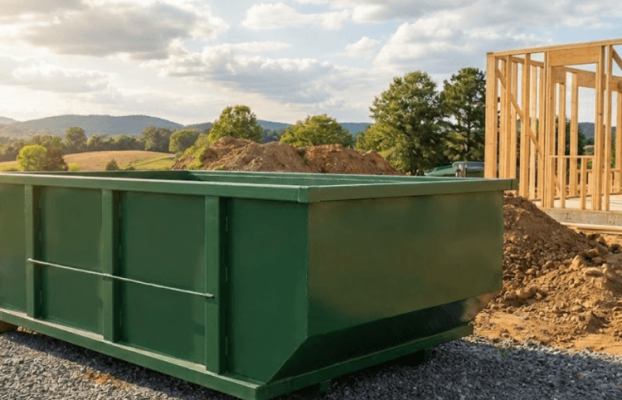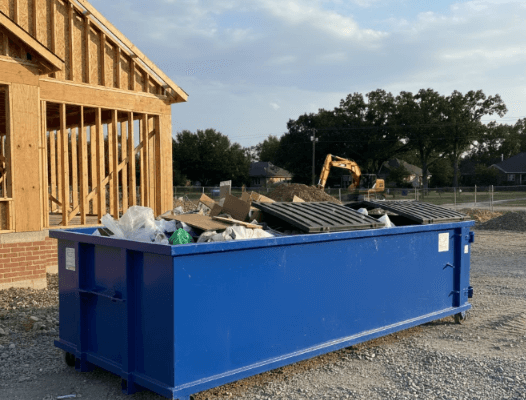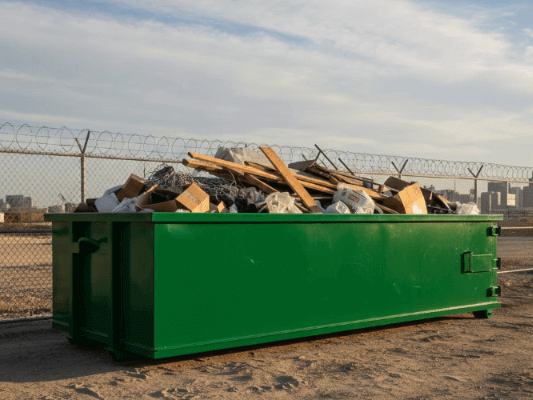The Art of Old Gas Disposal: A Comprehensive Guide
Did you know that one gallon of gasoline containing MtBE can contaminate 6.3 million gallons of drinking water? That’s enough yearly water supply for 42 households.
But why would you have old gas in the first place?
Many appliances and tools in residential areas rely on gasoline as fuel. This includes lawnmowers, backup generators, trimmers, jet skis, and camping stoves. And it doesn’t stop at residential areas because commercial spaces also rely on gas to fuel power tools.
Where does this old gas go?
Some people think that this old gasoline can be recycled or used. As a matter of fact, your power tools and lawnmower will show you in real time this was a bad idea. So, can it be dumped in the garden? Say goodbye to your plants!
That being said, where on earth should we dispose of old gas?
At Jiffy Junk we offer comprehensive junk removal services and it’s our duty to teach our clients how to dispose of old gasoline without breaking any laws or harming the environment. Whether it’s part of our yard waste removal or basement cleanout services, your problem will be solved as you read this article.
Get a Live Quote Now
Connect to a live representative and get a quote in real time for junk removal in your area.Table of Contents
Environmental Impact of Improper Gas Disposal
Let’s be honest. Do you know someone who dumped old gasoline into the nearest landfill? Perhaps they thought that pouring just a little in the backyard wouldn’t harm anyone.
The truth is that the consequences of carelessly discarding old gasoline extend far beyond just creating a mess. This is why it’s extremely important to understand how this seemingly small action can have significant ripple effects on our ecosystems, water sources, and air quality.
Gasoline components can persist in the environment for years. If you spill gasoline into the ground, the toxic components will leak into groundwater and rivers. You should also never dispose of old gas into drains, sewers, or toilets because it will directly get into the water stream.
And that’s not all. The Volatile Organic Compounds (VOCs) from evaporating gasoline contribute to ground-level ozone formation, a key component of smog. One gallon of regular gasoline can contaminate up to 750,000 gallons of drinking water, so you get the idea.
Unfortunately, we saw this in real-time in 2023 when a gasoline spill occurred in the Hawaiian island of Oahu, impacting the lives of thousands of people.
But this can be avoided with Jiffy Junk’s responsible junk removal methods. We offer high-quality debris removal services that take care of everything, including removing old gasoline containers.
Soil Contamination and Biodiversity Loss
At Jiffy Junk, we prioritize environmental and green practices. We’ve successfully planted more than 15,000 trees, and our commitment to teaching people how to dispose of old gas properly aligns with our company’s policy.
Some homeowners and business owners think that dumping a little gas doesn’t do much harm. Unfortunately, it doesn’t simply disappear. It seeps into the soil to set off a chain reaction that can disrupt the delicate balance of life beneath our feet. A countless number of organisms suffer because of this irresponsible action.
This chemical compound reduces soil pH, making it more acidic and less hospitable for many plant species. Moreover, hydrocarbon contamination can inhibit seed germination and root growth.
Long-term Effects on Soil Fertility
Studies show the impact of gasoline is long-term and can have a lasting effect on soil fertility. In short, dumping gasoline can alter the soil’s fertility for years, impacting its ability to support plant life. Yes. If you don’t know how to dispose of bad gas, you could be killing countless plants.
The loss of organic matter in soil alters its composition and its ability to hold water. It can also increase soil erosion and reduce aeration. At the same time, living organisms that feed on live and dead plant matter will eventually disappear from affected areas. This, in turn, affects larger animals and birds that feed on these smaller organisms.
Soil bacteria and fungi can break down gas in the soil but they take time. So, wouldn’t it be a better idea if you could avoid this hassle in the first place by learning how to dispose of gas properly?
| Soil Property | Impact of Gasoline Contamination |
|---|---|
| pH Level | Increased acidity |
| Microbial Activity | Up to 90% decrease |
| Organic Matter | Significant reduction |
| Water Retention | Decreased capacity |
| Nutrient Availability | Reduced for plants |
| Recovery Time | 5-40 years |
Bioaccumulation in Food Chains
We explained that altering the soil’s features affects the living organisms that live in it, and accordingly, decreases the amount of food available for other creatures. But that’s not all.
The impact of gasoline contamination doesn't stop at the soil level. Through a process called bioaccumulation, these contaminants can work their way up the food chain. The chemicals deposit in the bodies of various organisms, including humans.
For example, the consumption of contaminated seafood when fish are exposed to gasoline in water has a negative impact on human health.
Studies show that polycyclic aromatic hydrocarbons (PAHs) deposit in the fatty tissues of living organisms, especially in the brain, liver, spleen, placenta, kidneys, and lungs. There could also be a link between the levels of PAHs and obesity.
Groundwater Contamination and Public Health
The risk of contamination doesn’t stop here. Disposal of gas contaminates groundwater sources. As many communities rely on this water, hundreds of thousands of people could be in danger.
Gasoline doesn’t stop where you dump it. It travels through soil and rock formation to reach groundwater aquifers.
High levels of gasoline compounds like benzene have been linked to various diseases, as studies show that the leukemia risk increases in industrial workers. This is why the EPA has set its maximum contaminant level to 5 parts per billion in drinking water.

Not knowing how to dispose of gasoline properly has a lasting impact on water bodies and the organisms that live in it.
Source: Climatechangenews.com
Detection Challenges in Water Systems
Unlike spilling gas into a landfill or a backyard, detecting gasoline spills in water isn’t always that easy. Some gasoline components can be detected by smell even at low concentrations. However, some harmful compounds may be present without noticeable odor if you don’t learn how to dispose of gasoline right.
This is where technology comes in. Advanced analytics techniques like gas chromatography-mass spectrometry can be used to detect the quantity and type of specific gasoline components in water.
Moreover, continuous monitoring systems using fluorescence spectroscopy can provide real-time detection of petroleum hydrocarbons in water.
But at Jiffy Junk, we always say that prevention is the best cure. This is why encourage people in local communities to dispose of their junk together. This is a cost-efficient way to get rid of gas and other harmful materials safely.
Long-term Health Implications
Exposure to gasoline-contaminated water, even at low levels, can have serious long-term health effects. While acute exposure to high concentrations is obviously dangerous, it's the potential for chronic, low-level exposure that often goes overlooked.
Benzene, a component of gasoline, is a known human carcinogen. Long-term exposure to benzene primarily affects the bone marrow, leading to blood disorders such as anemia and increasing the risk of leukemia, particularly acute myeloid leukemia (AML).
Long-term exposure to high levels of benzene in the air can cause leukemia, a cancer of the blood-forming organs. This can happen if you regularly dispose of gasoline in your backyard or garden.
Certain gasoline additives, like methyl tert-butyl ether (MTBE), are known for their persistence in groundwater. MTBE can remain in water supplies for extended periods, posing potential health risks.
Studies have linked MTBE exposure to kidney and liver problems in animal studies, though more research is needed to fully understand its effects on human health.
A notable example of the long-term health implications of gasoline-related water contamination occurred at U.S. Marine Corps Base Camp Lejeune in North Carolina. From the 1950s through the 1980s, individuals at the base were exposed to drinking water contaminated with industrial solvents and benzene from leaking underground storage tanks.
This exposure has been associated with increased risks of cancers such as leukemia, bladder cancer, and kidney cancer. In response, the Camp Lejeune Justice Act was passed in 2022, allowing affected individuals to seek compensation.
Now the question arises: with all this scientific evidence, why do some people still dump gasoline in water bodies and landfills?
Some are concerned about the cost. While it’s true that junk removal is never really free, hiring our professionals to get rid of gasoline and other hazardous materials is totally worth it.
Our staff is trained to handle gasoline, solvents, and other materials used in cleaning, construction, and other industries. This is part of our commercial and residential junk removal services.
We understand that the cost of removing junk is probably the reason why people seek the easy way out. But with our various financing options, getting rid of all your junk, including gasoline containers, has never been easier.
Volatile Organic Compound Emissions
Unfortunately, gasoline pollution doesn’t stop at what you can see and smell. Although most people focus on liquid spills, gasoline’s volatile nature means it doesn’t need to be spilled to cause harm.
Gasoline contains multiple VOCs and their number and composition change with exposure to temperature. As it evaporates, the VOCs significantly contribute to air pollution. These emissions impact both environmental and human health in ways that are often overlooked.
The rate of VOC emissions from gasoline multiplies in hot weather, making proper storage and disposal even more critical during the summer months.
So, what does this mean for you? The old gasoline cans or tins you keep in your garage aren’t 100% safe. Not only do they represent a fire hazard, but they can also impact your health negatively. But, getting rid of this junk is easy with our garage cleanout services, for instance.
Importantly, it doesn’t stop here. Once released into the air, VOCs react with nitrogen oxides (NOx) in the presence of sunlight to form ground-level ozone, a primary component of smog.
Smog is a significant air quality issue that can cause respiratory problems, eye irritation, and exacerbate conditions like asthma.
At Jiffy Junk, we understand that there are several reasons why you would have old gas lurking in your attic, basement, garage, or other crawl areas. This is where our decluttering services come in.
Because the safety of our clients comes first, we can teach you how to remove old gas from a vehicle and store it properly until our professionals are ready to pick it up. This video explains how to do it safely and easily.
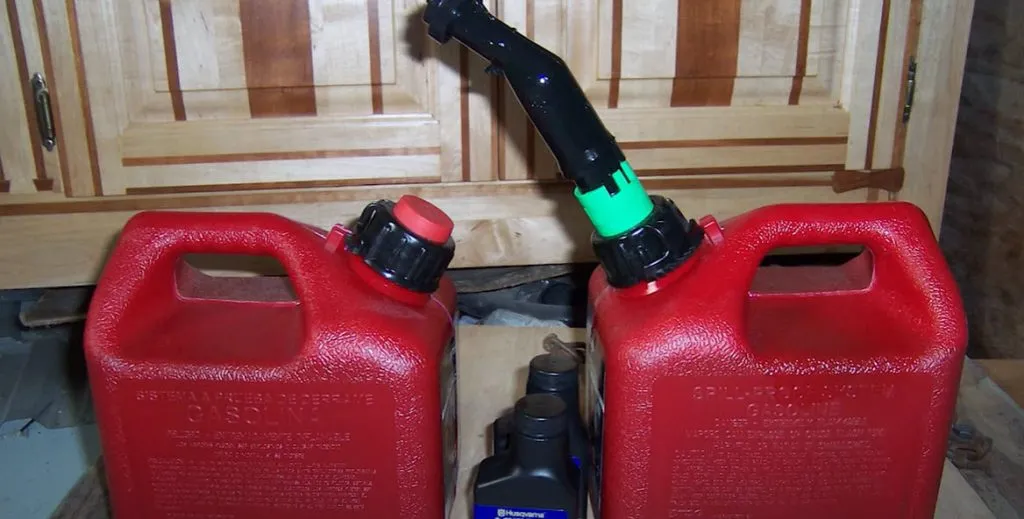
Learning how to dispose of gasoline properly is a community duty.
Source: Actenviro.com
Innovative Recycling and Repurposing Methods
At Jiffy Junk, green and environmentally friendly practices define our business operations. This is why we’re always working on improving our recycling and repurposing methods.
And no. This doesn’t involve reusing old gas in another power tool or appliance.
Luckily, the recycling industry is always improving, guaranteeing that less and less waste will end up in landfills and water bodies. New techniques can also transform gasoline from an environmental hazard into a useful resource.
For example, new filtration systems can remove most of the contaminants to make gasoline suitable for other applications. Moreover, some recycling facilities use distillation to separate gasoline into various components for industrial processes.
At Jiffy Junk, recycling is our main concern, so we cooperate with the latest recycling facilities in every community.
Fuel Blending and Stabilization
Fuel blending is one of the most straightforward ways to handle old gasoline. It relies on mixing waste gasoline with commercial fuel to change its characteristics.
Fuel stabilization is another technique that prevents fuel degradation. Homeowners and business owners can rely on stabilizers to extend the shelf life of gasoline up to 12 months, which reduces waste and disposal needs.
DIY Fuel Reconditioning
For those who prefer a hands-on approach, DIY conditioning old gasoline can be a good solution. This technique requires care, attention, and experience, but it’s an excellent way to reduce waste.
It basically relies on a water-separating fuel filter to remove water contamination from old gasoline. Also, activated carbon filtration can adsorb many organic contaminants from gasoline, improving its quality for use in less sensitive engines.
So, is this an easy job for everyone? The short answer is: no. While DIY is an excellent approach to handling your junk and reducing the cost of waste removal, it’s not always accessible.
Luckily, you can find us at many locations, as we work with local contractors and recycling facilities to guarantee that your junk is disposed of in the safest way possible.
Industrial Applications for Degraded Gasoline
Apart from using your recycled gasoline for other applications, there are numerous industrial applications for old or degraded gasoline. Many industries have found clever ways to incorporate this potential waste product into their processes, turning a disposal challenge into a valuable resource.
For example, some power plants can use a blend of degraded gasoline in their fuel mix without significant modifications to their equipment. Moreover, the petrochemical industry can use old gasoline as a feedstock for producing various chemicals, reducing the need for fresh crude oil.
This is why at Jiffy Junk we prioritize cooperating with local factories and facilities to make the best use of your discarded gasoline. Our franchise is always growing, as it currently ranks No. 366 on the 2024 Inc. 5000. This way we guarantee that we’re always ready to offer our bulk junk and waste removal services and help you dispose of old gas properly.
Solvent Production
Fractional distillation can be used to separate the components of old gasoline. These components are later used as solvents in several industrial applications.
This practice reduces the carbon footprint of solvent manufacturing compared to using fresh petroleum. At the same time, it’s an excellent way to make use of waste gasoline.
Asphalt Modification
Another commercial application of waste gasoline is using it in the modification of asphalt for road construction.
By incorporating degraded fuel into asphalt mixtures, we can improve the resistance of thermal cracking of road surfaces while finding a productive use for what would otherwise be a waste product. Moreover, the volatile components of old gasoline improve asphalt’s workability.
As a homeowner, you might not have access to facilities that recycle and reuse old gasoline. This is why calling Jiffy Junk is a must.
Not only do we get rid of your used gasoline safely, but we also make sure that ends up where it should be.
We’ll answer all your questions regarding the disposal of gasoline and offer you an accurate estimate of how much our services will cost. Additionally, we offer our exclusive White Glove service, as part our residential junk removal services, where our professionals leave your space squeaky clean no matter how cluttered it is.
Bioremediation and Phytoremediation
While gasoline contamination poses significant environmental risks, nature provides powerful tools for mitigating its impact. Currently, scientists are increasingly turning to bioremediation and phytoremediation methods that leverage microorganisms and plants to break down harmful gasoline components.
Certain bacteria can metabolize gasoline hydrocarbons, effectively breaking them down into less harmful compounds. One notable example is Pseudomonas putida, a bacterial strain capable of digesting hydrocarbons and converting them into water and carbon dioxide.
Hybrid poplars have been found to remove most of the gasoline compounds from the soil within a single growing season. These trees absorb contaminants through their roots and either store, break down or release them in a less harmful form.
Fungi, particularly white-rot fungi, have demonstrated an impressive ability to degrade complex hydrocarbons found in gasoline. These organisms release enzymes that break down toxic substances, making them valuable allies in bioremediation efforts.
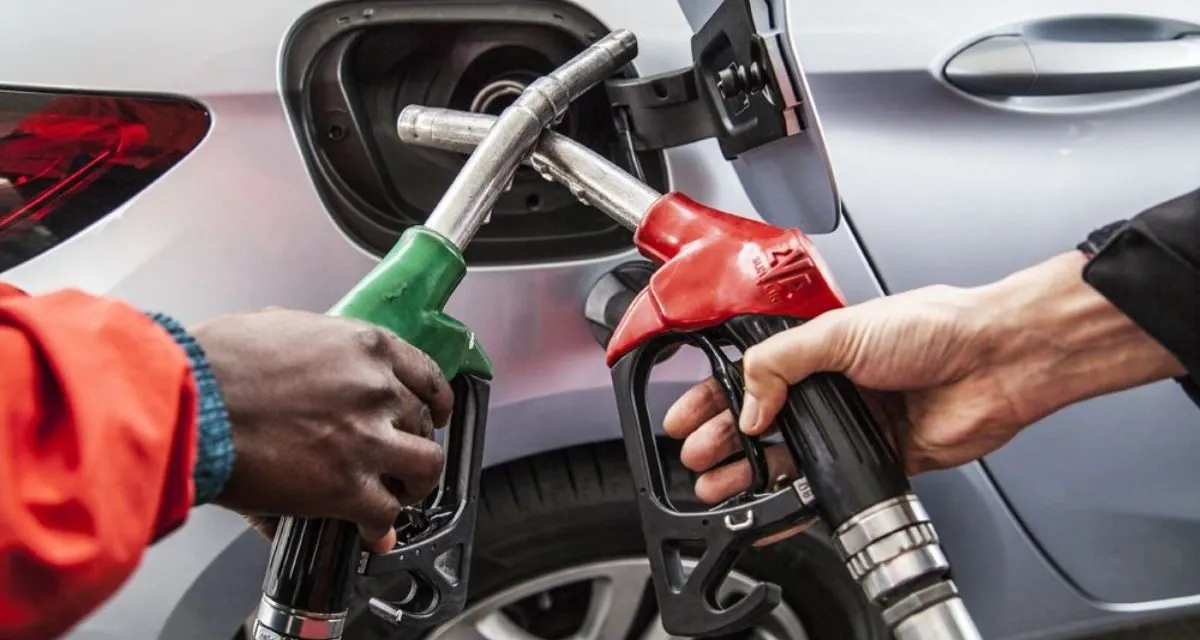
New technologies are working on finding ways to use old gas.
Source: Startupbiz.co.zw
Legal and Ethical Considerations
Proper gasoline disposal isn’t just an environmental responsibility—it’s a legal requirement. Strict regulations exist to prevent pollution, protect human health, and ensure hazardous waste is handled safely.
The Resource Conservation and Recovery Act (RCRA) is a federal law that classifies certain types of gasoline waste as hazardous. As a result, it requires strict disposal procedures to avoid environmental contamination.
Improper disposal can result in hefty fines, ranging from thousands to millions of dollars, depending on the severity of the violation.
The Evolving Regulatory Framework
Gasoline disposal regulations evolve as new scientific discoveries and technologies emerge, meaning staying informed is critical for homeowners and businesses.
The Environmental Protection Agency (EPA) revises its gasoline disposal guidelines every 3-5 years by incorporating new findings on environmental impact and disposal methods.
Some states, like California, enforce stricter gasoline disposal laws than federal standards. As a matter of fact, in some instances, businesses have sent their toxic waste to other states with weaker laws.
Penalties for Non-Compliance
Failing to adhere to gasoline disposal regulations can have serious financial and legal consequences.
| Violation Type | Penalty Range |
|---|---|
| Civil Penalties | Up to $54,833 per day of violation under the Clean Water Act |
| Criminal Penalties | Up to $50,000 per day + 3 years imprisonment for knowingly violating disposal laws |
| Remediation | Millions of dollars |
But these legal consequences can be avoided when you give us a call at Jiffy Junk. Our team is well aware of the laws and regulations that govern junk and waste disposal, including gasoline disposal. We also work with local facilities and contractors to ensure that your junk is removed in the most hassle-free way possible.
Booking our service is easy and fast. All you have to do is press the bell at the left bottom corner and you’ll immediately be connected to one of our representatives. Through a video call, you’ll be given a clear estimate of how much time and money your cleaning job will take.
Our professionals also offer comprehensive junk removal tips to help you store gasoline properly and get it ready for pickup.
Corporate Social Responsibility in Gas Disposal
At Jiffy Junk our services extend beyond residential junk to handling different types of commercial junk removal issues. We also understand that proper gas disposal extends beyond legal compliance, as it’s a crucial aspect of corporate social responsibility (CSR).
Since companies and factories are likely to produce more gasoline waste than residential spaces, requesting our waste removal services becomes a business necessity.
Companies with good gasoline disposal programs have been shown to have better brand perception among environmentally conscious consumers. Moreover, implementing advanced gasoline recycling programs reduces a company's carbon footprint and contributes to broader sustainability goals.
Our professionals offer different types of commercial cleanout services, including trash overflow, cardboard pickup, and storage unit cleanout services. Containers of old gasoline can be part of this process once you give us a call and schedule a visit.
Transparency in Disposal Methods
As more people are aware of the importance of eco-friendly junk removal, being open about gas disposal methods can be a significant advantage for businesses. Companies should publish detailed reports on their gasoline disposal methods as this can increase customers’ trust.
New practices like blockchain technology and open-source initiatives can be used to create transparent records to reduce wrong disposal-related incidents.
Community Engagement and Education
Effective gas disposal isn’t just about corporate or individual actions. It takes community awareness and involvement.
Educational initiatives and community engagement programs play a pivotal role in promoting responsible disposal practices on a broader scale. This is why at Jiffy Junk we encourage our clients to request our seasonal dumpster rental service. It’s a cost-efficient solution that allows you to break down the cost of getting rid of your junk.
Disposal of Gas Cans and Containers
Another problem arises when you’re disposing of old gas. This involves getting rid of the container that held it. Proper handling and recycling of gas cans is essential for completing the disposal cycle responsibly.
So, how do you dispose of old gas cans?
Improper disposal of gas cans can lead to residual gasoline contamination. A single empty can contain some residual gas that will eventually seep into the soil.
When you contact us to remove your junk, including gas containers, you know that these containers will be handled properly. Old gas tins can be taken care of with our scrap metal pick-up service. At the same time, we follow eco-friendly practices to recycle plastic containers, so it doesn’t end up in a landfill.
Decontamination Techniques
It’s very important to decontaminate gas containers before recycling or repurposing them. This process guarantees that the containers are safe for handling and processing as no chemical residues remain in them.
We encourage our clients to use a degreasing agent to clean old and empty gas containers. Some biodegradable solvents can also work.
Neutralization of Residual Fumes
After cleaning the container, some gasoline vapors can persist. Homeowners and business owners can use activated charcoal absorption to remove residual gasoline vapors from containers.
Recycling Options for Different Container Materials
Gas containers are made of various materials, and each one requires a different recycling process. Understanding these criteria ensures that every component of the container is handled responsibly to maximize resource recovery and minimize environmental impact.
At Jiffy Junk, we specialize in recycling various materials, including scrap metal pickup and removing plastic as part of our debris removal service.
Metal gas cans can be recycled through standard scrap metal processes, with more than 90% of the material typically recoverable. Also, HDPE plastic cans can be ground into pellets and used to manufacture new plastic products, with a recycling efficiency of up to 90%.
On the other hand, composite containers often require specialized recycling facilities capable of separating and processing multiple materials.
Upcycling Gas Cans
In addition to traditional recycling methods, creative individuals have found innovative ways to repurpose old gas cans. They can be used as planters, while some artists use them as raw materials for sculptures.
You’d be surprised by how much your junk is really worth if you hire one of our specialized services like the attic cleanout service.
Alternative Uses for Old Gasoline
While industrial applications for disposed of gas represent a great solution, there are other situations where this waste material can find new purposes. These unconventional uses can help reduce waste and potentially create value from what would otherwise be a disposal challenge.
For example, when properly diluted, old gasoline can be used as a degreasing agent in certain industrial cleaning processes. Some types of old gasoline can be used as a fuel additive in waste oil burners, providing supplemental heat for industrial operations.
Pest Control Applications
Although gasoline’s environmental impact can be devastating, in some cases, degraded fuel can be used as an effective deterrent for specific pests.
For example, a diluted solution of 1 part old gasoline to 50 parts water can repel certain insect species when applied to non-edible plants. Moreover, gasoline-soaked rags placed strategically can deter rodents from entering structures, though this method requires careful monitoring.
Ant and Termite Barriers
Some people say that old gasoline can be used as a temporary barrier against invasive pets like termites and ants. However, this isn’t a potent or permanent solution. Moreover, it can cause damage to your flooring.
Professional pest controllers use specific chemicals that can provide a solution if you deal with such an infestation. Always remember that our crawl space cleaning services and hoarding cleanout services guarantee that your place won’t represent an inviting environment for pests.
Weed Management
Another controversial use for old gasoline is in weed control. It’s true that gasoline can kill annoying weeds, but it can also damage your good plants.
Moreover, its environmental impact goes beyond weeds to affect a variety of living organisms that live in your backyard.
A highly diluted gasoline solution of 1:100 parts water is sometimes used as a herbicide when everything else fails. Nevertheless, it can do more harm than good.
Precautions and Environmental Considerations
While considering alternative uses for old gasoline, especially in pest or weed control, it's paramount to weigh the potential benefits against environmental risks. Strict precautions and a thorough understanding of local regulations are essential.
For example, in some areas, this is strictly prohibited and can subject you to legal fines. In general, gasoline application for pest or weed management often requires special permits and must comply with local environmental protection laws. Moreover, soil before and after any gasoline application for pest or weed control is crucial to monitor potential contamination.

When used in weed control, old gas can do more harm than good.
Source: Slashgear.com
Technological Innovations in Gas Disposal
Proper gas disposal is a growing industry. New technologies are changing how we view old gasoline, as it’s considered a resource and not a waste material.
For example, we can expect UV light to be used more often to degrade gasoline contaminants in water and control their environmental impact. Moreover, more advanced filters can be used to remove gasoline components from the soil and water.
Chemical Conversion Processes
One of the most common processes is transforming old gasoline into less harmful substances. For example, scientists are working on using hydrogenation to change aromatic compounds in gasoline into less toxic cycloalkanes.
Other chemical processes can change gasoline components into other materials that can be used in plastic manufacturing.
Catalytic Degradation
Catalytic degradation is an emerging approach that relies on specific catalysts to accelerate the breakdown of gas molecules. New experiments reveal that under UV light, nano-sized titanium dioxide can break gasoline components fast.
Gasoline-to-Energy Systems
Instead of viewing old gasoline as a problem, these new technologies focus on benefiting from its energy content. Innovative systems rely on microbial fuel cells using specialized bacteria that can generate electricity directly from gasoline contaminants in wastewater.
Additionally, plasma gasification technology can convert gasoline and other hydrocarbon wastes into syngas, a valuable fuel for power generation.
AI-Powered Disposal Management
Like many industries, we expect to see AI improving gas disposal management by optimizing tools and predicting environmental impacts.
For example, machine learning algorithms can predict the optimal disposal method for a given batch of old gasoline based on several predetermined factors. Also, AI-driven monitoring systems can detect gasoline leaks and spills in real time.
At Jiffy Junk, we’ve recently incorporated AI to streamline and improve our booking process, making waste removal and management more accessible than ever. It looks like the future will see many AI benefits in waste removal.
How Jiffy Junk Can Help
Our main goal at Jiffy Junk is to help you get rid of waste responsibly while minimizing the impact on the environment. The company practices perfectly align with the fundamentals of responsible gas disposal because we put eco-friendly practices first.
Our staff is trained to handle different kinds of waste. We’re ready with equipment and tools to handle different types of junk with our comprehensive decluttering services.
With exceptional attention to detail, we ensure compliance with local and federal regulations by cooperating with local contractors to make sure we aren’t breaking any laws while getting rid of old gasoline.
Our team can provide guidance, and where appropriate, assist with the safe removal and disposal of these materials.
It’s time to handle these old gas containers safely. With Jiffy Junk, your old gas won’t be an environmental or legal liability. Once you order our valet trash service, we can pick up old gasoline containers, if they’re properly prepared.
If you’re not sure, you can click the bell at the bottom-left corner and you’ll be directly connected to one of our representatives. You can discuss your waste removal concerns with one of our team members and you’ll receive an accurate estimate for the service price.
Learnings Recap
We’ve finally reached our gas disposal journey. And by now, we hope you can see the amount of potential it holds.
Improper gas disposal can be a serious problem because it has a lasting environmental impact on the soil and water. Moreover, the aromatic compounds can also negatively affect air quality.
Luckily, new innovative recycling and repurposing methods are becoming more popular to offer alternatives to traditional disposal.
It all starts with the proper storage of old gasoline and handling its containers. Then, implementing the right ways to dispose of old gasoline. Also, new technologies focus on transforming old gasoline from a waste material to a potential source of energy.
With Jiffy Junk, this can be possible. Our waste management practices focus on implementing green and eco-friendly practices to handle waste responsibly.
We guarantee that your disposed of gasoline won’t end up in a water body or a landfill because we cooperate with local contractors and recycling facilities to get rid of waste in the safest way possible.
As new technologies are emerging, we’re eager to see what innovative practices are teaching us about how to dispose of old gasoline properly.
More from Jiffy Junk
Robust Service
Interested in Getting Started?
Have a big cleanout job that needs to be done right away? Contact us today. We'll get rid of your junk in a jiffy!
Fast & Reliable
What Our Customers Are Saying
Thousands of satisfied customers across America have shared their Jiffy Junk Experience.
